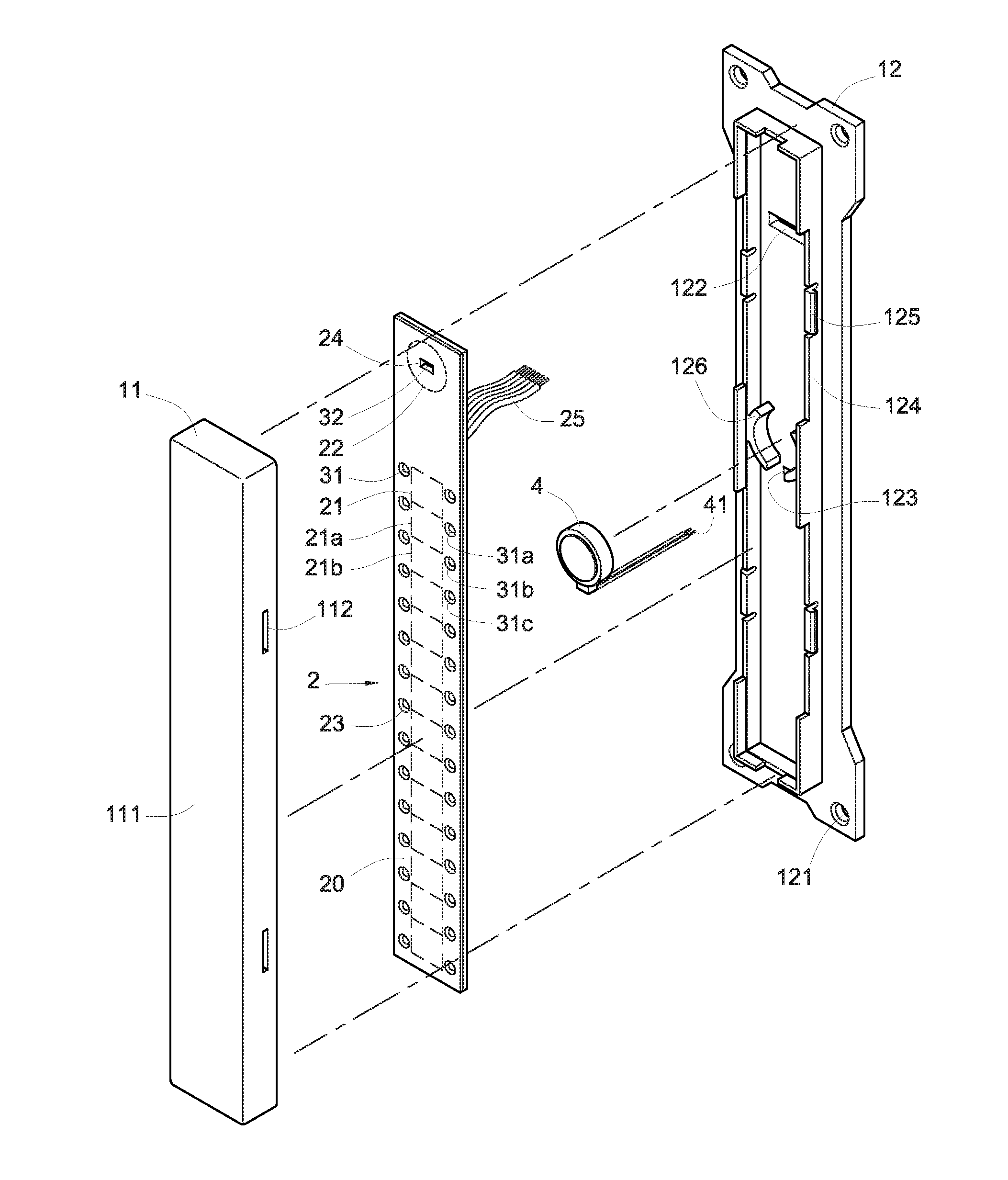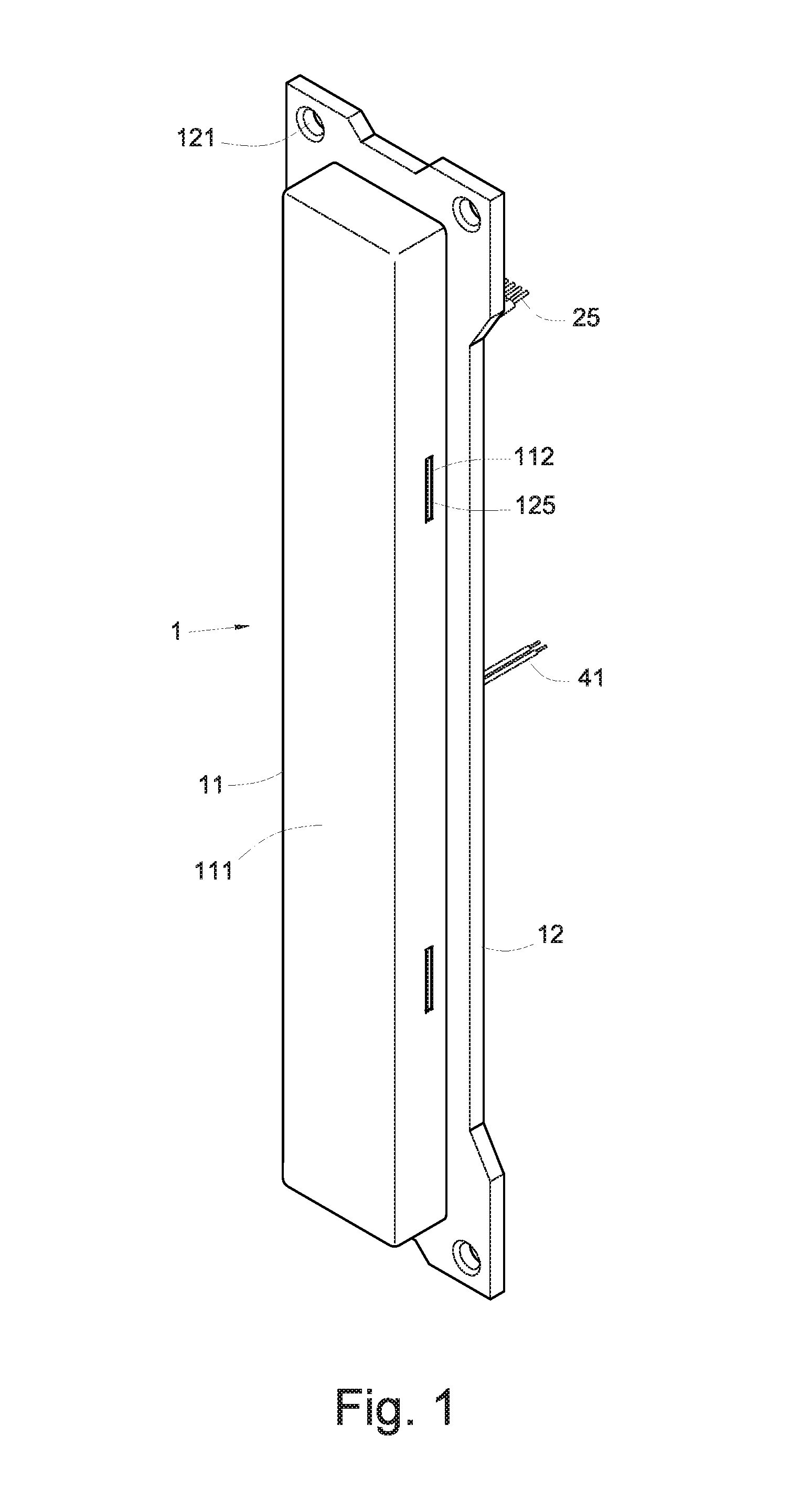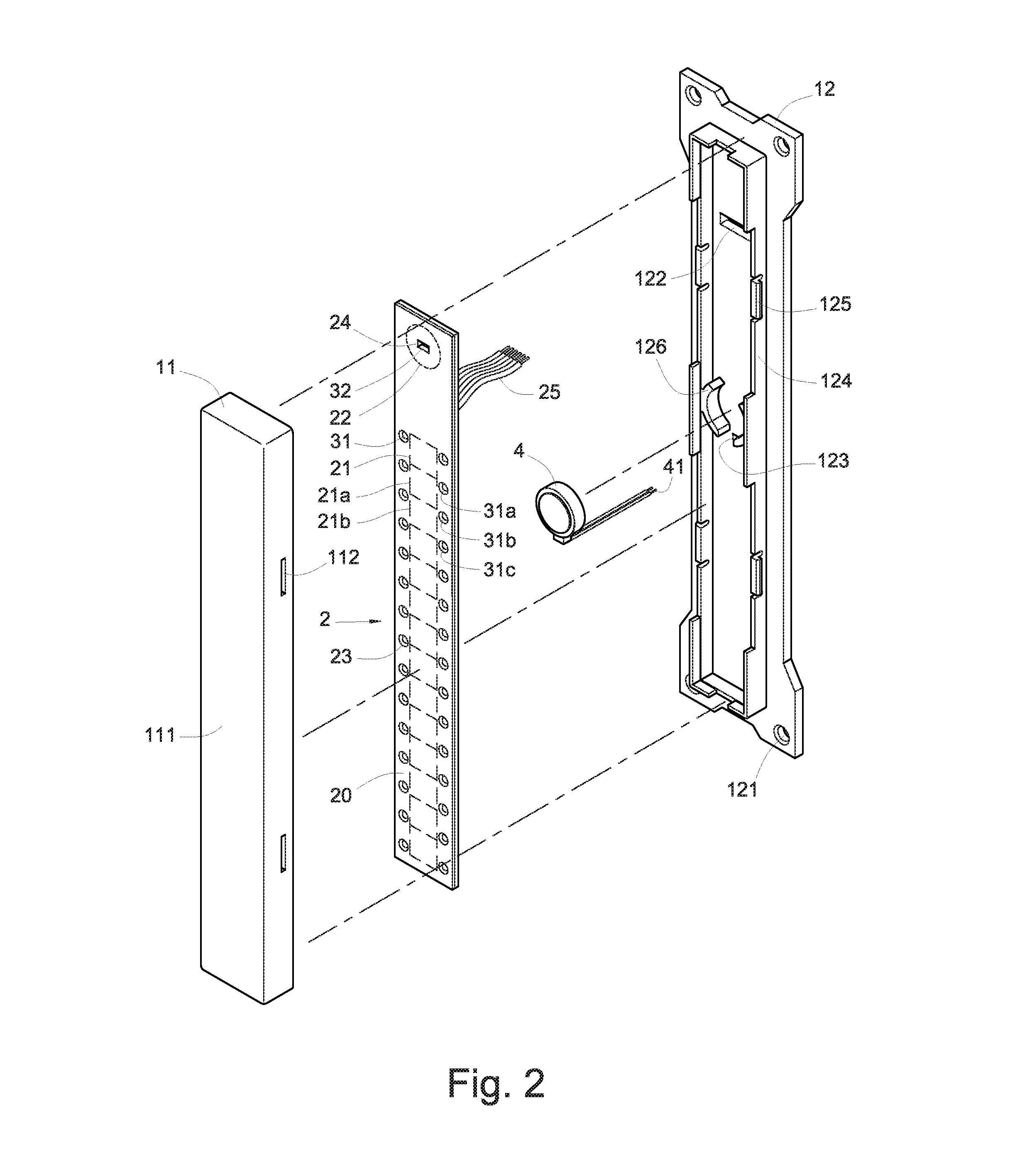Photoelectric touch-sensitive linear adjustment switch for an electric appliance
a technology of linear adjustment switch and electric appliance, which is applied in the direction of instruments, pulse techniques, coding, etc., can solve the problems of affecting the ability of the switch to adjust and control a power source, malfunction, damage, etc., and achieves the effect of preventing the accumulation preventing the deposition or accumulation of dust or grime, and affecting the normal operation
- Summary
- Abstract
- Description
- Claims
- Application Information
AI Technical Summary
Benefits of technology
Problems solved by technology
Method used
Image
Examples
Embodiment Construction
[0030]FIG. 1 is a perspective view of a preferred embodiment of the present invention. FIG. 2 is an exploded perspective view of the embodiment shown in FIG. 1. FIG. 3 is a front view of the embodiment shown in FIG. 1.
[0031]FIG. 4 is a sectional view taken along line A-A of FIG. 3. FIG. 5 is a front view similar to FIG. 3, showing another mode of implementation. Referring to FIG. 1 to FIG. 5, a touch-sensitive linear adjustment switch according to the present invention includes a housing 1, a touch control circuit board 2, and a plurality of first light-emitting elements 31.
[0032]The housing 1 has an elongated configuration and forms a receiving groove 10 therein. The housing 1 has an outer wall serving as a light-permeable sensing surface 111 to be touched by a human hand.
[0033]The housing 1 includes a strip-shaped upper cover 11 and a strip-shaped lower cover 12. The sensing surface 111 is an outer wall of the strip-shaped upper cover 11.
[0034]The strip-shaped lower cover 12 is pe...
PUM
 Login to View More
Login to View More Abstract
Description
Claims
Application Information
 Login to View More
Login to View More - R&D
- Intellectual Property
- Life Sciences
- Materials
- Tech Scout
- Unparalleled Data Quality
- Higher Quality Content
- 60% Fewer Hallucinations
Browse by: Latest US Patents, China's latest patents, Technical Efficacy Thesaurus, Application Domain, Technology Topic, Popular Technical Reports.
© 2025 PatSnap. All rights reserved.Legal|Privacy policy|Modern Slavery Act Transparency Statement|Sitemap|About US| Contact US: help@patsnap.com



